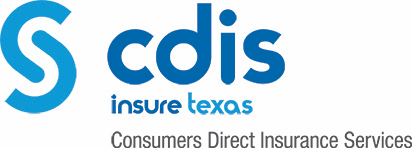Prescription drug benefits are often included as part of an employer-provided health insurance plan. If you are one of the thousands of seniors relying on coverage through work and expect to use your plan’s drug benefits, do you have ‘creditable coverage’? As a Medicare-eligible policyholder, you have the right to know whether or not your current drug coverage meets the standard Medicare prescription drug coverage, and is considered ‘creditable’.
If your current prescription drug benefits are provided through an employer, union, or another source, understanding what ‘creditable coverage’ means and how it applies to you will help you make an informed decision—potentially saving you money. The good news? All companies offering prescription drug coverage are required by law to notify you about the status of benefits and whether or not your drug plan meets or exceeds the standard Medicare Part D Prescription Drug plan.
Understanding Creditable Coverage
For prescription drug coverage to be creditable, the plan must expect to pay (on average) as much as the standard Medicare prescription drug coverage. How is this determined?
Creditable coverage does the following:
- Provides coverage for brand name and generic prescriptions.
- Provides reasonable access to retail providers.
- Pays an average of at least 60 percent of a participant’s drug expenses.
- Satisfies at least one from below:
- No annual benefit maximum.
- An expectation is that the amount payable by the plan will be at least 2,000 annually.
- For integrated coverage: No more than $250 deductible per year, no annual benefit maximum, and no less than a $1,000,000 lifetime combined benefit maximum.
Why It Matters
Of course, there’s a good reason why it makes sense to maintain creditable prescription drug coverage. Medicare beneficiaries who decide not to sign up for Part D prescription drug coverage when they are first eligible, but enter the program late often have to pay more. People signing up late for Medicare Part D without creditable drug coverage may be subject to a 1 percent monthly premium penalty for late enrollment.
However, if you have drug benefits through an employer—and it’s creditable—you can stay with your current plan instead of enrolling in Medicare Part D and avoid paying higher prices when you do enroll. In other words, as long as your current drug benefits are as good as Medicare, or ‘creditable’, you can continue to use them and will not pay higher prices when you decide to enroll in Part D at a later date.
What You Should Know
As long as you maintain drug coverage through an employer or union, you should receive a notice by mail each September informing you whether or not your coverage is ‘creditable’. Be sure to keep this documentation—you may need it should you decide to move to a Medicare drug plan later.
References:
https://www.cms.gov/medicare/prescription-drug-coverage/creditablecoverage/index.html
https://www.cms.gov/medicare/prescription-drug-coverage/creditablecoverage/downloads/whatiscreditablecoverage.pdf
https://www.medicare.gov/forms-help-and-resources/mail-about-medicare/notice-of-creditable-coverage.html
MUC55-2017-BCBS


